Foreclosure:
What You Should Know
Foreclosure:
What You Should Know
Foreclosure: What You Should Know
We understand that economic conditions may create challenging situations that prevent some individuals and families from meeting their financial obligations. If you are having trouble making your mortgage payments, we recommend that you take action immediately by calling your lender (see contact information below).
The sooner you take action, the more options you will have to avoid a foreclosure action on your property. A formal foreclosure will damage your credit rating, negatively impacting your ability to borrow money in the future.
Repayment plan Your lender may agree to give you a fixed amount of time to repay the amount you are behind by combining a portion of what is past due with your regular monthly payment. At the end of the repayment period, you will have gradually paid back the amount of your mortgage that was delinquent.
Loan modification The lender may present an option to change the terms of the mortgage to make payments more affordable. Common loan modifications include:
Adding missed payments to the existing loan balance
Converting an adjustable-rate mortgage into a fixed-rate mortgage
Extending the number of years you have to repay
Forbearance The lender may allow reduced or suspended payments for a short period of time, after which another option will be agreed upon to bring the loan current. A forbearance option is often combined with a repayment plan or modification to bring the account current at a specific time.
Financial documents you will need:
Most recent pay stubs
Most recent W-2 tax statement
Most recent bank statement
A written statement explaining your financial hardship
A written financial statement detailing your income and expenses
Who to call
If your mortgage lender is Certified Federal Credit Union: 323.859.2250, Option [1]
If your mortgage lender is another institution: Contact your lender directly
Counseling
We partner with BALANCE, a financial education and counseling service that offers free, confidential counseling to help individuals and families get back on track with their bills. A BALANCE counselor can go over your income and expenses and offer options for dealing with your debt. The best time to deal with your finances is before they become a problem. We encourage you to take advantage of this opportunity to go over your situation with a professional. For more information, or to schedule an appointment, call:
888.456.2227 M-Th | 5:00am – 8:00pm (Pacific)
F | 5:00am – 5:00pm, Sa | 8:00am – 5:00pm.
You can also find a credit counseling agency in your local phone book or by contacting the U.S. Department of Housing and Urban Development (HUD) at:
800.569.4287 M-F | 9:00am – 5:00pm (Eastern)

